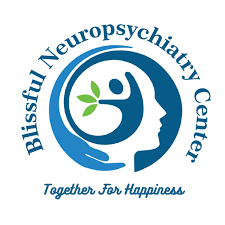In the brain, individuals who consume alcohol often experience headaches, dizziness, and intense fear. When they haven’t had a drink, they feel shaky, their heart races, they sweat profusely, they feel lightheaded and as if they’re about to fall, and their hands tremble uncontrollably. After consuming alcohol, these distressing symptoms disappear, leading to a false sense of strength and well-being; they might feel healthy and capable of work.
Conversely, when not drinking, they feel inadequate and diminished, a sentiment that extends to their interactions, such as feeling insufficient when not communicating with their spouse or not handling their personal affairs.
Alcohol’s Impact on Relationships and Social Standing
Many individuals who abuse alcohol also face significant sexual problems with their partners, including erectile dysfunction, difficulties during intercourse, or premature ejaculation. Despite experiencing arousal and a desire for sex, the individual may be unable to perform adequately for a sustained period. This can lead to the wife suspecting infidelity, creating further marital discord and deepening the husband’s feelings of inadequacy. Such problems are commonly linked to alcohol abuse, and if you are experiencing them, alcohol could be the root cause.
Furthermore, from a social and family perspective, a person who drinks excessively gradually loses respect. His wife, children, and siblings may cease to respect him or provide financial assistance when needed, often viewing him as unreliable. This stark contrast from a once-respected figure to someone no longer esteemed within their own home can be incredibly difficult to bear. Regaining this lost respect often necessitates giving up alcohol entirely.
The Cycle of Anger, Isolation, and Escalating Problems
An individual who abuses alcohol frequently becomes angry and aggressive, leading to a decline in their friendships and an increase in legal troubles. Fights and disputes become common, and they may unwittingly find themselves entangled in legal complications due to their inability to manage problems rationally. Friends may distance themselves, partly due to conflicts or unpaid debts, as all finances are often squandered on alcohol.
Another significant issue is that intoxicated individuals tend to talk excessively, often saying hurtful things without considering the consequences. The next day, they usually have no recollection of their words or actions, oblivious to who they insulted, scolded, or even physically harmed. As a result, family members – parents, children, and spouses – begin to withdraw, leaving the individual bewildered and questioning why they are being ignored or met with anger. This isolation often pushes them to drink even more, perpetuating a destructive cycle.
Breaking the Cycle: Communication and Seeking Help
The underlying issue is often a profound lack of communication within the family. To foster healthy communication, both husband and wife must commit to calm and respectful dialogue, allowing them to resolve domestic, social, and child-related issues constructively. Without this, relationships at home will inevitably deteriorate, leading to the destruction of the family unit.
We frequently observe that alcohol abuse and addiction are significant contributors to marital breakdowns and divorces. It’s crucial to understand that excessive alcohol consumption is a form of mental health problem. While occasional, moderate drinking (e.g., 100ml or 6ml once or twice a month) might be acceptable for some, daily and heavy consumption warrants immediate attention.
If you are struggling with these issues, we strongly urge you to consult a doctor nearby at the earliest opportunity. Seeking timely professional help is vital for maintaining your physical and mental health, and for ensuring the happiness and well-being of your family.




